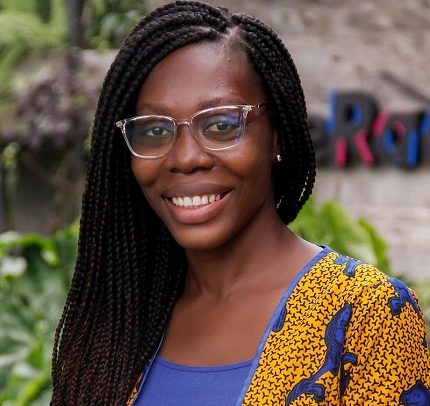
By Grace Quaye
In recent decades, women’s roles in the workforce and society have evolved significantly. However, despite these advancements, many women still face unique challenges when it comes to achieving financial independence.
From the gender pay gap to societal expectations and cultural norms, women often encounter barriers that can impede their financial progress. Nonetheless, with the right knowledge, tools, and mindset, women can overcome these obstacles and pave the way towards financial freedom and empowerment.
Understanding the Challenges:
One of the most prominent challenges that women face in their pursuit of financial independence is the gender pay gap. On average, women continue to earn less than their male counterparts for similar work, resulting in diminished lifetime earnings and retirement savings. Additionally, women are more likely to take on caregiving responsibilities, which can disrupt their careers and limit their earning potential.
Societal expectations and cultural norms also play a significant role in shaping women’s financial behaviors. From a young age, girls may receive less financial education and encouragement to pursue lucrative careers or take risks in the realm of finance. Moreover, women may face implicit biases and stereotypes that undermine their confidence in managing money and investing.
Building Financial Confidence:
Despite these challenges, women have the power to take control of their financial futures and break free from traditional constraints. The journey towards financial independence begins with building confidence and knowledge in personal finance matters. This may involve seeking out financial education resources, attending workshops or seminars, or working with financial advisors who understand the unique needs and goals of women.
Creating a Solid Financial Foundation:
To achieve financial independence, women must prioritize building a solid financial foundation. This includes establishing and adhering to a budget, managing debt responsibly, and saving diligently for short-term and long-term goals. Women should also focus on building emergency savings to weather unexpected financial challenges and protect themselves from economic instability.
Investing in the Future:
Investing is a critical component of wealth building and financial independence. Women should educate themselves about different investment options, such as stocks, bonds, mutual funds, and retirement accounts, and develop a diversified investment strategy that aligns with their risk tolerance and financial goals. By investing early and consistently, women can harness the power of compound interest to grow their wealth over time.
Navigating Life Transitions:
Life is full of transitions, and women may encounter unique financial challenges during key life stages such as marriage, divorce, childbirth, or caregiving responsibilities. It’s essential for women to plan for these transitions, understand their financial rights and options, and seek support when needed. Building a strong support network of friends, family, and professionals can provide invaluable guidance and assistance during challenging times.
Empowering Future Generations:
As women break barriers and achieve financial independence, they pave the way for future generations of women to follow suit. By serving as role models, mentors, and advocates for financial literacy and empowerment, women can inspire others to take control of their finances and create a more equitable and prosperous future for all.
“Behind every great woman ….is another great woman.”
—-Kate Hodges
By implementing these practical strategies below and taking proactive steps towards financial empowerment, women can break barriers, overcome challenges, and achieve true financial independence.
Negotiate for Equal Pay:
Women can advocate for themselves by negotiating for equal pay and benefits in the workplace. Researching salary benchmarks for their industry and position, highlighting their skills and achievements, and confidently articulating their value during salary negotiations can help women secure fair compensation that reflects their worth.
Invest in Education and Skill Development:
Investing in education and skill development can enhance women’s earning potential and career opportunities. Whether pursuing higher education, certifications, or skill-building workshops, acquiring new knowledge and expertise can open doors to higher-paying jobs and increased financial stability.
Start a Side Business or Freelance Gig:
Women can explore entrepreneurship by starting a side business or freelancing in their spare time. Whether it’s offering consulting services, selling handmade crafts, or providing digital marketing expertise, a side hustle can generate additional income streams and supplement earnings from a primary job.
Save and Invest Consistently:
Women can prioritize saving and investing a portion of their income regularly to build wealth over time. Setting up automatic transfers to a savings account or retirement fund can help ensure consistent contributions. Additionally, women can explore various investment options, such as stocks, bonds, mutual funds, or real estate, to grow their wealth and achieve long-term financial goals.
Plan for Retirement:
Planning for retirement is essential for achieving financial independence later in life. Women can take proactive steps to save for retirement by contributing to employer-sponsored retirement plans, such as Provident Funds and maximizing employer matching contributions. It’s also crucial to periodically review retirement savings goals and adjust investment strategies as needed to stay on track for a comfortable retirement.
Protect Financial Health with Insurance:
Women can safeguard their financial well-being by investing in insurance coverage to protect against unforeseen risks. This includes health insurance to cover medical expenses, disability insurance to replace lost income in the event of illness or injury, and life insurance to provide financial security for loved ones in the event of premature death.
Establish Emergency Savings:
Building an emergency savings fund can provide a financial safety net during times of unexpected expenses or income disruptions. Women can set aside a portion of their income in a dedicated savings account to cover essential living expenses, such as housing, food, and utilities, for three to six months.
Seek Financial Advice and Support:
Women can benefit from seeking professional financial advice and support to navigate complex financial decisions and maximize their resources. Working with a certified financial advisor who understands their unique needs and goals can provide personalized guidance and strategies for achieving financial independence.
Network and Mentorship:
Building a strong network of supportive peers, mentors, and role models can provide valuable guidance, encouragement, and opportunities for women to advance professionally and financially. Women can seek out mentorship relationships and networking opportunities within their industries or communities to gain insights, advice, and connections that can propel their careers forward.
Prioritize Self-Care and Well-being:
Finally, women should prioritize self-care and well-being as essential components of achieving financial independence. Maintaining physical and mental health, setting boundaries, and practicing self-care activities like exercising, can help women manage stress, stay focused, and sustain long-term success in their pursuit of financial independence.
“Smart women figure out what, exactly, makes them happiest. They spend generously on those things but cut out the rest”
— Laura Vanderkam
Achieving financial independence is not just about accumulating wealth; it’s about gaining autonomy, security, and peace of mind. Despite the challenges that women may face along the way, they have the resilience, intelligence, and determination to overcome obstacles and create the lives they desire. By breaking barriers, building financial confidence, and investing in their futures, women can chart a course towards true financial independence and empowerment.
Profile:
The writer is the Chief Marketing Officer (CMO) and Investment Advisor, Ashfield Investment Managers. She can be reached on 233246152750, E-mail [email protected] or [email protected]
The post Breaking barriers: Women’s guide to financial independence appeared first on The Business & Financial Times.
Read Full Story

























Facebook
Twitter
Pinterest
Instagram
Google+
YouTube
LinkedIn
RSS